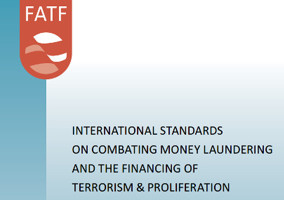Adam Pickering, international policy manager for CAF, explains why a change to financial regulations is so significant for charities.
The 25th of June 2016 saw a momentous announcement for charities that few will ever hear of. It might just herald the first step towards securing the long term access of charities to financial services. Globally, it may even mark the point at which government became accountable for policies which actively supress civil society in the name of security.
The Financial Action Task Force, or FATF as it is generally known, is an international organisation that was established in 1989 to address the problem of money laundering. Following the 9/11 terror attacks, its mandate was extended to make recommendations to help the financial industry prevent terrorist financing. These recommendations set the scene for regulators looking at these issues, and send a strong message to the banks and financial institutions operating all round the world.
The 40 recommendations FAFT produced include one specifically applying to “NGOs”. Recommendation 8 (R8) has severe ramifications for charities - particularly those operating in fragile states. It warns that non-profit organisations “are particularly vulnerable, and countries should ensure that they cannot be misused”.
Of course, it would be naïve to suggest that just because charities strive to deliver public benefit, they are somehow insulated from exposure to the economy of terror. Funders of terrorist groups will look to hijack legitimate financial channels which move funds to their areas of operation and given that these areas are often those with severe humanitarian need; this makes charities an obvious target.
However, the assumption that charities are somehow innately at risk by a body with huge influence over regulatory policy has arguably led to the entire charitable sector being seen as a high risk by financial institutions.
But now, thanks in large part to the combined influence of charities around the world - both individually and through the Non Profit Platform on the FATF - this blanket assumption of risk has now been removed. R8 now states that;
“Countries should review the adequacy of laws and regulations that relate to non-profit organisations which the country has identified as being vulnerable to terrorist financing abuse. Countries should apply focused and proportionate measures, in line with the risk-based approach, to such non-profit organisations to protect them from terrorist financing abuse […]”
This change comes along with a string of revisions to accompanying documents which guide the way FATF recommendations are implemented.
In some respects, the changes announced to the Interpretive Note on recommendation 8 (IN) are even more striking to those made to R8 itself. This document, which both advises government policy but also establishes the grounds on which countries will be evaluated by FATF, replaces many of the old set of blanket assumptions about NGOs and instead mandates that governments take a risk-based approach to organisations. The document is far from perfect but it, contains significant improvements. It states that “given the diversity within individual national sectors, the differing degrees to which parts of each sector may be vulnerable to terrorist financing abuse, the need to ensure that legitimate charitable activity continues to flourish, and the limited resources and authorities available to combat terrorist financing in each country”. It also recognises the importance of “flexibility in developing a national response to terrorist financing abuse of NPOs.”
This is a very significant change as it means that no longer will countries be rewarded for overregulation in FATF evaluations. The text now implies that those countries which eliminate risk by making the work of NGOs untenable will be marked down as governments will now be expected to ensure that they, “to the extent reasonably possible, minimise negative impact on innocent and legitimate beneficiaries of charitable activity.” Charities will be pushing for this interpretation to remove one of the many factors that contribute to the global closing space for civil society in which governments restrict the funding and activities of legitimate organisations and funders.
It is also significant that the IN states the importance of NGOs in tackling terrorism and its causes by stating that; “[FATF] recognises the intent and efforts to date of NPOs to promote transparency within their operations and to prevent terrorist financing abuse, including through the development of programmes aimed at discouraging radicalisation and violent extremism.”
Charities Aid Foundation has, like many other international charities, been working with our peers from around the world to provide detailed and well evidenced submissions to FATF on these documents and this has undoubtedly had an impact. However, I feel that it is necessary to single out the Charity Commission for praise.
FATF is a membership body and its member nations are represented by civil servants. For the most part, these tend to be treasury officials. This can mean that they lack an understanding of the charity sector. However, the UK gives responsibility for issues relating to R8 to the Charity Commission meaning that when FATF came to review its Interpretative Note to R8 (IN) the Commission was well placed to chair it. By opening up the IN to public consultation (to which CAF responded) and meeting with UK charities to update us on the process – the Commission undoubtedly helped the sector to get its message across.
This then is the perfect illustration of why the advocacy of charities is so valuable as the result is policy which not only better defend against terrorist financing but also ensures that charities are able address the causes and symptoms of terror.
Of course, this is only a small step in ensuring that the increasing pressure on regulators and financial service providers does not lead to undue the “de-risking” of charities. We would all prefer to be left to get on with out charitable activities free from the bureaucracy of meeting bank compliance requirements but it is crucial that charities recognise that in the current environment, the banks are not free to operate on trust. Banks are facing rapidly increasing compliance bills in order to avoid crippling fines, particularly in the US courts.
Only with clear regulatory expectations and safeguards will this trend be abated. We can of course work at the national level to influence government policy but in the meantime, helping charities adjust to the new normal of increased compliance requirements will be crucial.
Adam Pickering is international policy manager at Charities Aid Foundation.
Related articles












